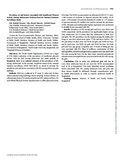| dc.contributor.author | Hossain, Md Mokbul | |
| dc.contributor.author | Shamim, Abu Ahmed | |
| dc.contributor.author | Hasan, Mehedi | |
| dc.contributor.author | Hanif, Abu Abdullah Mohammad | |
| dc.contributor.author | Hossaine, Moyazzam | |
| dc.contributor.author | Ullah, Mohammad Aman | |
| dc.contributor.author | Sarker, Samir Kanti | |
| dc.contributor.author | Rahman, S M Mustafizur | |
| dc.contributor.author | Mitra, Dipak Kumar | |
| dc.contributor.author | Haque, Md Emdadul | |
| dc.contributor.author | Mridha, Malay | |
| dc.date.accessioned | 2022-05-25T06:34:02Z | |
| dc.date.available | 2022-05-25T06:34:02Z | |
| dc.date.copyright | 2020 | |
| dc.date.issued | 2020-05-29 | |
| dc.identifier.citation | Hossain, M. M., , , , , , , , , , Shamim, A. A., Hasan, M., Hanif, A. A. M., Hossaine, M., Ullah, M. A., … Mridha, M. (2020). Prevalence of and Factors Associated with Insufficient Physical Activity Among Adolescents: Evidence from the National Nutrition Surveillance Study. Current Developments in Nutrition, 4(Supplement_2), 1755. doi:https://doi.org/10.1093/cdn/nzaa066_010 | en_US |
| dc.identifier.uri | http://hdl.handle.net/10361/16674 | |
| dc.description | This article was published in the Current Developments in Nutrition by Oxford Academic [This article is published and distributed under the terms of the Oxford University Press, Standard Journals Publication Model (https://academic.oup.com/journals/pages/open_access/funder_policies/chorus/standard_publication_model)] and the definite version is available at: https://doi.org/10.1093/cdn/nzaa066_010 The Journal's website is at: https://academic.oup.com/cdn/article/4/Supplement_2/1755/5844713 | en_US |
| dc.description.abstract | Objectives: The World Health Organization (WHO) set a target
of 15% relative reduction of the prevalence of insufficient physical
activity (IPA) by 2025 among adolescents and adults globally. In
Bangladesh, there is no national estimates of the prevalence of IPA
among adolescents. In the recently completed round of the national
nutrition surveillance (NNS 2018–2019), we aimed to estimate the
prevalence and risk factors associated with IPA among adolescent girls
and boys.
Methods: NNS was conducted in 57 rural, 15 urban and 10 slum
clusters selected using multistage cluster sampling. In these clusters, we
collected data from 4732 adolescent girls and 4761 adolescent boys. We
used Global Physical Activity Questionnaire to collect physical activity
(PA) data. The WHO recommended cut off points for IPA (5–17 years:
<300 minutes of moderate to vigorous-intensity PA weekly; 18–19
years: <150 minutes of moderate intensity PA weekly or <75 minutes
of vigorous-intensity PA weekly) were used to estimate the prevalence
of IPA. Bivariate and multivariable logistic regression were performed
to identify factors associated with IPA.
Results: Prevalence of IPA among girls and boys were 50.6% and
29.4%, respectively and the prevalence was significantly higher among
early adolescents (10–14 years) than late adolescents in both boys
and girls. The IPA prevalence was the highest among the adolescents
living in non-slum urban areas (girls: 77.9% and boys: 64.6%). The
IPA prevalence in slum areas was 36.6% for girls and 34.0% for boys;
and in rural areas was 50.0% for girls and 28.2% for boys. For both
girls and boys, age group, occupation and >6 hours of sitting per day
were associated with IPA. Place of residence, consumption of fruits
and vegetables, education and paternal occupation were associated with
IPA only among the boys. On the other hand, maternal and paternal
education and overweight/obesity were associated with IPA only among
the girls.
Conclusions: One in every two adolescent girls and one in
every three adolescent boys do not meet the WHO recommended
level of PA in Bangladesh. This study identified several modifiable
factors associated with IPA among adolescent boys and girls and
these factors should be addressed through comprehensive public health interventions in order to improve adolescent health in
Bangladesh. | en_US |
| dc.language.iso | en_US | en_US |
| dc.publisher | Oxford Academic | en_US |
| dc.relation.uri | https://academic.oup.com/cdn/article/4/Supplement_2/1755/5844713 | |
| dc.subject | Insufficient Physical Activity | en_US |
| dc.subject | Adolescents | en_US |
| dc.subject | National Nutrition Surveillance Study | en_US |
| dc.title | Prevalence of and Factors Associated with Insufficient Physical Activity Among Adolescents: Evidence from the National Nutrition Surveillance Study | en_US |
| dc.type | Journal Article | en_US |
| dc.description.version | Published | |
| dc.contributor.department | Brac James P. Grant School of Public Health | |
| dc.identifier.doi | https://doi.org/10.1093/cdn/nzaa066_010 | |
| dc.relation.journal | Current Developments in Nutrition | |

